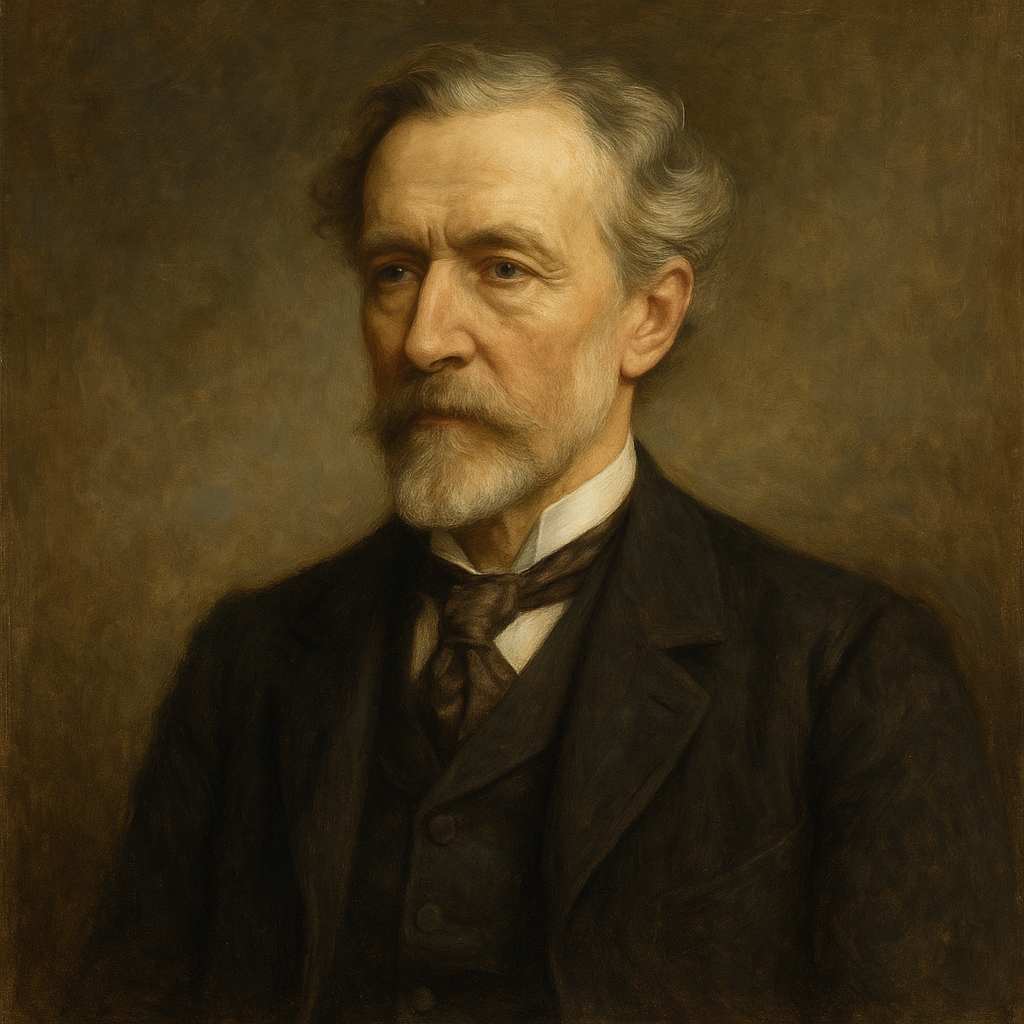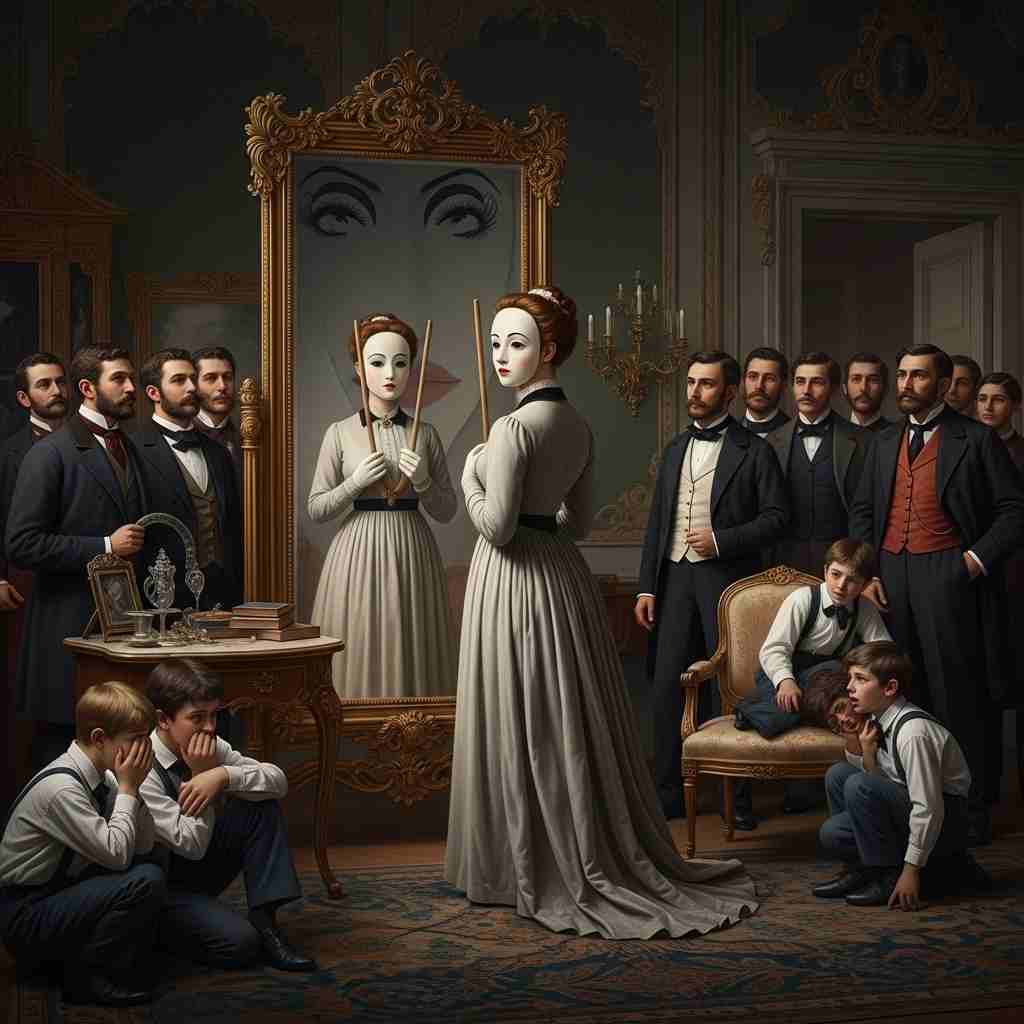6 Poems by Wilfrid Scawen Blunt
1840 - 1922
Wilfrid Scawen Blunt Biography
Wilfrid Scawen Blunt, born on August 17, 1840, in Petworth House, Sussex, England, was a fascinating figure who defied easy categorization. A poet, political activist, and adventurer, Blunt lived a life as colorful and complex as the verses he penned. Born into the English gentry, he was educated at Stonyhurst College and later at St. Mary's College, Oscott, institutions that would shape his early worldview and provide the foundation for his later intellectual pursuits.
Blunt's early career as a diplomat in the British Foreign Office took him to various postings across Europe and the Middle East, experiences that would profoundly influence his literary output and political views. It was during his time in the diplomatic service that he developed a deep fascination with Arab culture and Islam, themes that would recur throughout his poetic works and political writings.
In 1869, Blunt married Lady Anne Noel, granddaughter of Lord Byron. This union not only connected him to one of England's most celebrated poets but also provided him with a partner who shared his passion for Arab culture and horsemanship. Together, they embarked on extensive travels throughout the Middle East, documenting their journeys and observations in works such as "Bedouin Tribes of the Euphrates" (1879) and "A Pilgrimage to Nejd" (1881).
Blunt's poetic career began in earnest with the publication of "Sonnets and Songs by Proteus" in 1875. This collection, along with subsequent works like "The Love Sonnets of Proteus" (1881) and "In Vinculis" (1889), showcased his mastery of traditional forms, particularly the sonnet. His verses were marked by a lyrical quality, a keen observation of nature, and a deep engagement with themes of love, politics, and cultural identity.
What sets Blunt apart from many of his contemporaries was his ability to seamlessly blend the personal and the political in his poetry. His experiences in the Middle East and his growing disillusionment with British imperialism found powerful expression in works like "The Wind and the Whirlwind" (1883), a scathing critique of British policy in Egypt. This poem, along with others, demonstrates Blunt's willingness to use his art as a vehicle for political commentary, a stance that often put him at odds with the establishment.
Blunt's political activism extended far beyond his poetry. He was a vocal critic of British imperialism and a passionate advocate for Egyptian and Irish nationalism. His involvement in Irish politics led to his arrest and imprisonment in 1887 for participating in protests against the eviction of tenants in County Galway. This experience inspired some of his most powerful verses, collected in "In Vinculis," which blend personal reflection with political indictment.
Throughout his life, Blunt maintained a complex relationship with his native England. While he was deeply critical of British foreign policy, he was also a product of the English aristocracy and maintained a grand estate at Crabbet Park in Sussex. This estate became famous for its Arabian horse stud, which Blunt and his wife established using horses they had acquired during their Middle Eastern travels. The Crabbet Arabian Stud would go on to have a significant influence on Arabian horse breeding worldwide.
Blunt's literary output was not limited to poetry. He was a prolific diarist, and his journals, published posthumously, provide invaluable insights into the political and cultural landscape of late Victorian and Edwardian England. His prose works, including "The Future of Islam" (1882) and "Ideas About India" (1885), demonstrate his engagement with the pressing geopolitical issues of his time and his ability to challenge prevailing narratives about the relationship between East and West.
In his later years, Blunt became something of a recluse, retreating to his estate at Newbuildings Place in Sussex. However, he continued to write and remained engaged with political issues until his death on September 10, 1922. His final years were marked by personal tragedy, including the death of his wife in 1917 and estrangement from his only surviving child, Judith.
Wilfrid Scawen Blunt's legacy is multifaceted. As a poet, he is remembered for his skillful use of traditional forms and his ability to infuse them with contemporary relevance. His political activism, while controversial in his time, anticipates later anti-colonial movements and critiques of imperialism. His writings on Arab culture and Islam continue to be studied for their insights into cross-cultural understanding and the complexities of East-West relations.
For scholars of literature, Blunt presents a fascinating case study in the intersection of poetry and politics, the role of the artist as social critic, and the tensions between tradition and modernity in late 19th and early 20th century English literature. His work invites comparisons with other politically engaged poets of his era, such as Rudyard Kipling, while also prefiguring the more overt political engagements of modernist poets like W.B. Yeats and Ezra Pound.
In conclusion, Wilfrid Scawen Blunt emerges as a figure of enduring interest and complexity. Poet, political activist, traveler, and cultural bridge-builder, he defied easy categorization in his own time and continues to challenge and intrigue readers and scholars today. His life and work offer a unique lens through which to view the cultural and political transformations of his era, making him a subject worthy of continued study and appreciation in the fields of literature, history, and cultural studies.
This text was generated by AI and is for reference only. Learn more
Username Information
No username is open
Everything is free to use, but donations are always appreciated.
Quick Links
© 2024-2025 R.I.Chalmers (V2Melody).

All music on this site by R.I.Chalmers (V2Melody) is licensed under a Creative Commons Attribution-NonCommercial 4.0 International License.
Attribution Requirement:
When using this music, you must give appropriate credit by including the following statement (or equivalent) wherever the music is used or credited:
"Music by R.I.Chalmers (V2Melody) – https://v2melody.com"
Support My Work:
If you enjoy this music and would like to support future creations, your thanks are always welcome but never required.
Thanks!







